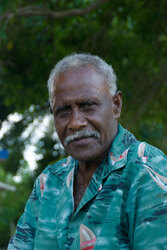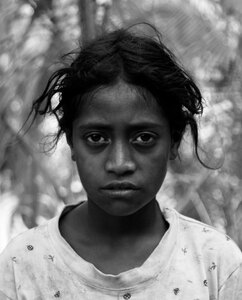A note for online readers: As I write this, I am recovering from a systemic fungus infection that covered my entire body with a damnably itchy red rash severe enough that my physician spontaneously exclaimed in surprise when he saw it. Pockets lighter by over twelve thousand vatu (about USD 120), I am now burdened with three different medications and six more weeks of treatment before I have any assurance it won’t recur. My friend Ruth informs me that her entire community is rife with the same condition. I do not, however, have enough money to treat even one of them. They’ll have to content themselves with rubbing their bodies down with bush limes, not a pleasant undertaking, to say the least.
At the same time, my brother’s daughter (and my namesake) has only just recovered from a nasty infestation of boils all over her forehead. I can’t describe the poor child’s misery. Her father has been kept from work for over a week now with one of these nasty putrescences in his armpit. It’s so painful that he’s been walking around with his hand permanently poised against his hip like a lawn jockey. The elderly man he’s hired to look after the family kava bar has one foot rendered nearly useless by chronic infection, and his eldest boy has a permanently misshapen thigh bone, fractured by a subcutaneous abscess that was never properly diagnosed or treated.
The list goes on.
Remediating problems like these is not simply a medical issue. The causes are environmental and infrastructural in nature. There is currently little awareness – and no comprehensive statistical measurement – of the extent of the damage to society by afflictions that are simply not tolerated in developed areas. I say ‘areas’ because such problems are utterly unknown in the wealthier parts of town.
So now you know what motivated me to write the following in this week’s Weekender edition of the Vanuatu Daily Post….
Let any man who thinks humanity resides at the apex of evolution come and live in the tropics for a year or two. It won’t take long for him to realise that in warmer countries, the average human being is nothing more than an elaborately conceived buffet for a multitude of creatures too small to see.
God may love all creatures great and small, but sometimes I’m tempted to believe he likes the small ones better. I could recite a laundry list of different little creatures I’ve played host to in my years here. From tiny viruses, bacteria and single-celled plasmids to fungi and molds on up the chain to mites, ticks and worms, insects without number… I give myself the willies just thinking about them.
I suspect it’s no accident that ‘paradise’ and ‘parasite’ are so easy to mix up on the page.
Continue reading →

 The problem with having 850 words a week is that I can only say one thing at a time.
The problem with having 850 words a week is that I can only say one thing at a time. Attendees of this year’s World Economic Forum in Davos, Switzerland, received an invitation from the UN High Commissioner for Refugees to ‘an event you will never forget’. The event, called the
Attendees of this year’s World Economic Forum in Davos, Switzerland, received an invitation from the UN High Commissioner for Refugees to ‘an event you will never forget’. The event, called the